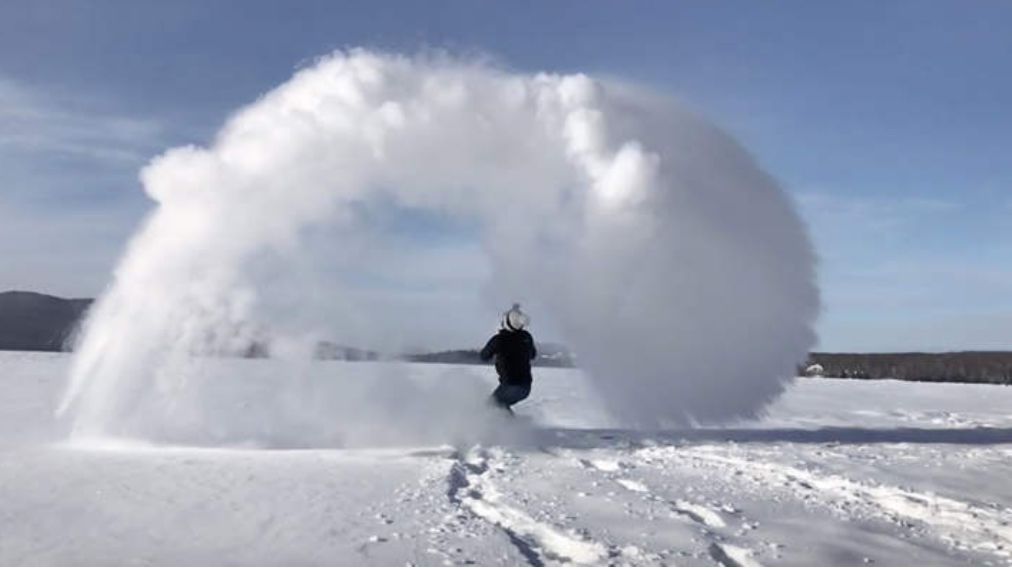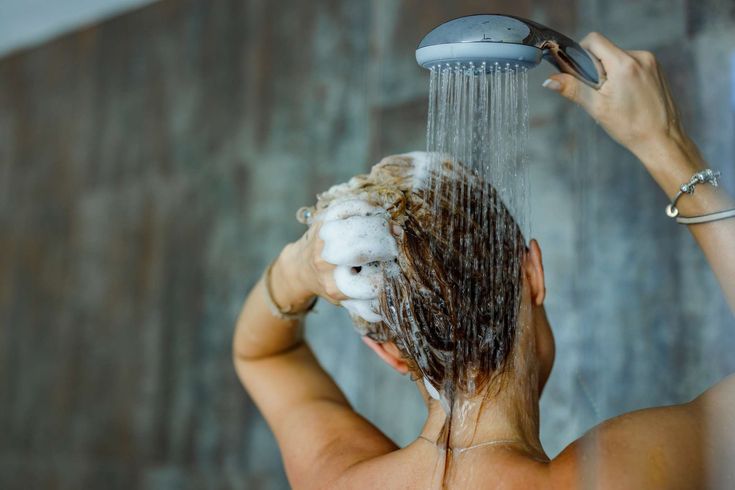
A young Chinese woman has suffered second-degree burns after attempting a popular winter trick that went horribly wrong. The incident, which has since gone viral, highlights the dangers of trying to replicate the seemingly harmless spectacle of hot water turning to ice in sub-zero temperatures.
The trick, which has gained traction on social media, involves throwing hot water into the air on a freezing cold day, creating a mist of ice crystals that appears to freeze mid-air. It’s an impressive visual, but as one woman, Jiang Nu, discovered last week, it can also be perilous if not done correctly.
Jiang, who had travelled with her boyfriend to the northeastern Heilongjiang Province, was eager to try the trick in temperatures of around -20°C. Armed with an electric kettle of hot water, she stepped outside and attempted to mimic the viral stunt, while her boyfriend filmed her. However, despite the icy conditions, the water did not freeze as anticipated. Instead, the hot water droplets fell back onto her exposed head, causing significant burns.
In the viral video that followed, Jiang is seen immediately collapsing in pain as the water makes contact with her scalp. Her boyfriend quickly rushed to her aid and took her to a nearby hospital. Thankfully, Jiang had the presence of mind to apply a cold compress to minimise the damage, but the burns were severe enough to require treatment. The hospital applied burn cream, and she was discharged the same day.
Despite the injury, Jiang did not let it deter her. The very next night, she tried the trick again, this time taking precautions by wearing a thick hood to shield her head. While the hot water still failed to freeze, she fortunately avoided further burns.
The incident highlights a crucial safety consideration: the temperatures required for the water to freeze instantly are far colder than Jiang had realised. To achieve the desired effect, temperatures must be around -30°C or lower. At these extreme temperatures, the hot water vaporises rather than freezing, creating the misty effect. However, even in these conditions, there is no guarantee the water will freeze perfectly, and the risk of injury remains if precautions are not taken.
Jiang’s unfortunate experience serves as a cautionary tale. While the winter trick may look impressive on social media, it can pose serious risks if not performed in the right conditions or with proper safety measures in place. If you’re considering attempting it, perhaps it’s best to leave the hot water out of the equation—or at the very least, avoid splashing it near your head.
Read Full Story















Facebook
Twitter
Pinterest
Instagram
Google+
YouTube
LinkedIn
RSS